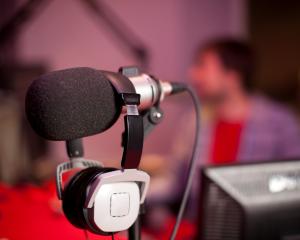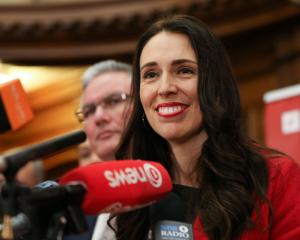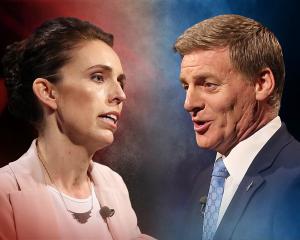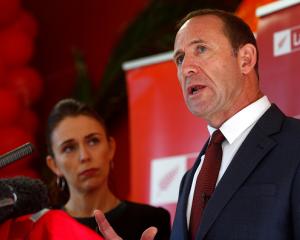Leadership of the Labour Party has been under media scrutiny since former prime minister Helen Clark resigned as party leader after the 2008 election defeat.
Phil Goff was quickly ushered into the no-win job, facing as he did a newly elected prime minister in John Key. Labour remained low in popularity polls and Mr Goff struggled to make an impression.
In a strange decision, Labour kept its leader's face and name off campaign hoardings in 2011 while National made much of the continuing popularity of Mr Key.
Following Labour's pounding at the 2011 polls, rumours started about rolling Mr Goff and soon, David Shearer, who had been catapulted into the safe Labour seat formerly held by Miss Clark, was elevated.
The leadership of the Labour Party has become something of a poisoned chalice. After the untimely death of Norman Kirk, regarded as one of Labour's great prime ministers, Bill Rowling lasted a short time as leader.
After the charismatic David Lange stepped away from the job, he was replaced by Sir Geoffrey Palmer, who was then replaced by Mike Moore - all within a quick succession of months.
Miss Clark wisely waited until Mr Moore lost the 1990 election before removing him. Despite Labour continuing to scrape near the bottom of the barrel for support, Miss Clark saw off a challenge to her leadership from colleagues concerned about the polling.
She then became New Zealand's first elected female prime minister, heading a Labour-led government for nine years.
Today, the three men challenging for Labour's leadership now Mr Shearer has been ousted will start their nationwide campaign to try and convince party members and union affiliates to give them the support.
Deputy leader Grant Robertson, Shane Jones and David Cunliffe will square off at 12 meetings putting their case to become leader. Each man has different strengths and although it is early days, each is making a strong case for selection.
The party has adopted what it says is a democratic process of electing its leader with the party members having much more say than previously.
Caucus members get 40% of the vote, members get 40% and the union affiliates get 20%.
For those who bemoan the influence of unions in politics, it must be remembered the birth of the Labour Party came from a movement of workers united in wanting a better deal in wages and conditions for the low paid in industries such as mining and ports.
National MPs have been on a high horse about the Labour leadership talent show. In National, the caucus members elect the leader but that does not always go smoothly.
It should be remembered former prime minister Jim Bolger was rolled by Dame Jenny Shipley while he was overseas. Dame Jenny was overthrown by Bill English after a resounding election defeat and Mr English was replaced when confronted by supporters of former Reserve Bank governor Don Brash after yet another election defeat.
Mr Key, a loyal deputy to Dr Brash, wasted no time in taking over once National had lost the 2005 election.
The difference between the Labour and National contests in the past has been the deep divisions remaining in Labour after any contest, with National MPs preferring to club together in an apparent show of unity.
National MPs know they do not have to be friends with anyone else, they just have to win an election. Over the years, it appears some Labour MPs would rather their party fail than support a leader they do not like or respect.
New Zealand has lacked an effective Opposition in Parliament with the Green Party, a minority player in Parliament, becoming the de facto Opposition as Labour continued to self-destruct.
List MP Maryan Street has admitted she was to take to Mr Shearer a motion of no confidence but Mr Shearer, now on gardening leave, jumped before the motion could be put.
It must be hoped that Labour can now use what it considers a democratic process to elect a leader and let that man provide the leadership the party members must surely be seeking.
The candidates, and their various caucus supporters, should look closely at their use of taxpayer funded air travel as the leadership contest continues through to September 15.
The leadership contenders have said they will use their Parliamentary flight entitlements to attend the 12 meetings, but will pay for their own accommodation and surface travel.
Also, the new leader is well advised to look for a deputy who can provide loyal service rather than working with a separate agenda to eventually destabilise the party once again.
If Labour cannot run itself, it must be assumed it cannot run the country.










